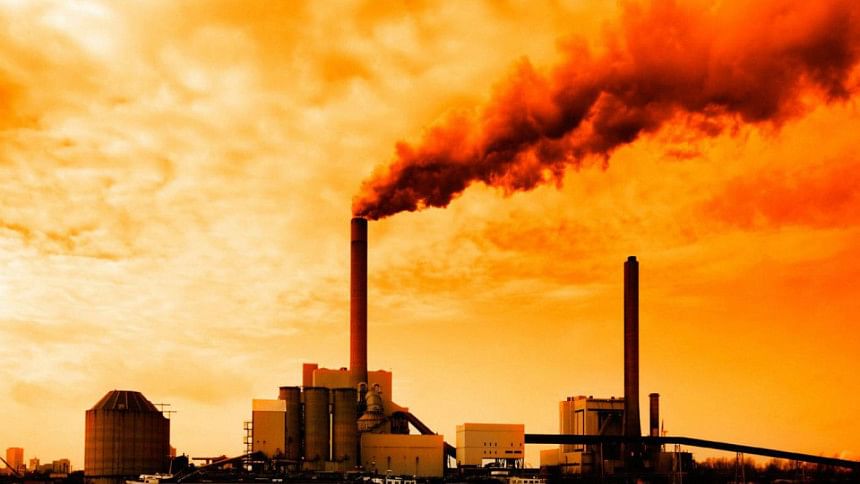Moving from fossil fuels to renewables at a funeral pace

Almost half a century ago, on December 7, 1972, the crew of the Apollo 17 satellite took the very first image of the Earth in its entirety. Famously known as "The Blue Marble," the extraordinary picture compelled humanity to question our place on this planet, the only home that we have ever known.
With the latest special report on global warming of 1.5 degrees Celsius published by the UN Intergovernmental Panel on Climate Change (IPCC), it is once again time for us to seriously reevaluate our commitments to this planet, to ourselves and to future generations. The landmark report warns that going beyond global warming of 1.5 degrees Celsius above pre-industrial levels, as opposed to the previously agreed upon long-term goal of 2 degrees Celsius, will lead to severe climate change catastrophes and we have only 12 years to limit that.
International negotiators are currently convening at the former coal mining hub of Katowice in southern Poland for the 24th Conference of Parties to the United Nations Framework Convention on Climate Change (UNFCCC), also known as COP24. During December 3-14, diplomats from 197 countries are to decide on measures to make the Paris Agreement, the pledge to keep temperatures between 1.5 and 2 degrees Celsius, a reality. While the summit is crucial for strengthening efforts on urgent global actions, the pace at which talks are progressing is alarmingly slow.
The summit is at a shameful deadlock after a coalition of four oil-exporting nations—the United States, Saudi Arabia, Kuwait, and Russia—launched an absurd effort to undermine the findings of the IPCC report. It is not uncommon in climate negotiation for a small group of players to disrupt possible global agreements, thanks to vested fossil fuel interests. Following a two-and-a-half-hour heated discussion on Saturday night, the oil allies rejected a motion to "welcome" the study. They instead proposed that it should merely be "noted" which would make it much easier for governments to disregard the report when needed.
The IPCC report defends calls to rapidly reduce the use of fossil fuels and to completely phase out coal by mid-century. Simultaneously, it insists on increasing the availability of efficient, low-cost renewable energy technologies. The global energy sector is heavily dependent on fossil fuels which contribute to the vast majority of greenhouse gas (GHG) emissions. Global economic growth led to an estimated 2.1 percent increase in energy demand in 2017 without a significant contribution from the renewable energy supply-side. As a result, the unrelenting increase in emissions of GHG is further deteriorating the climate of our planet.
While countries continue to heavily invest in fossil-based power plants, an upward trend is evident in the share of modern renewables in the total global energy supply owing to policy support and advances in technology. Because of rapid improvement in efficiency and dramatic reductions in cost of solar photovoltaics (PV) and wind turbines, renewable electricity is now less expensive than newly installed fossil energy in many regions of the world. In some places, it is even less expensive than using traditional power plants. However, all this gives an incomplete picture of the essentially inadequate progress made in the development of clean energy.
The energy transition in sectors other than the power sector has barely begun. The heating and cooling and transport sectors, which together account for about 80 percent of the global energy demand, are still largely lagging behind. While there are 57 countries with policies to achieve complete dependence on renewables in the power sector, Denmark is the sole nation in the world with a 100 percent renewable energy target for all three sectors: power, heating and cooling, and transport.
Incumbent leaders in many quarters of the energy industry regularly downplay renewables as "infeasible" and "too expensive" to support the global transformation of this sector. But interestingly enough, fossil fuels continue to receive the lion's share of subsidies, tax relief and other kinds of support due to the sector's adverse, far-reaching sphere of influence in the global economy. The total global subsidies allocated for fossil fuel production and consumption in 2016 have been estimated to be USD 370 billion, which is nearly double the estimated subsidies for renewable power generation. Fossil fuel subsidies essentially aid in distorting the market and slowing down the adoption of renewables.
The current pace at which we are transitioning into renewables will not in any way allow us to keep global temperature below 2 degrees Celsius above pre-industrial levels, let alone the safer limit of 1.5 degrees Celsius. The slow shift is also hindering our progress towards Sustainable Development Goal (SDG) 7 that has an objective of "ensuring access to affordable, reliable, sustainable and modern energy." About a billion people, or 13 percent of the global population, mostly concentrated in sub-Saharan Africa and South Asia, still lack access to electricity.
Over the past decades, progress has been made particularly in Bangladesh, Kenya, India and the Philippines through distributed renewables for energy access (DREA) like off-grid solar home systems. Moving towards a clean energy future while achieving universal energy access is possible but decision-makers need to think outside the "grid versus off-grid" dichotomy allowing for the integration of new technologies, business models and implementation strategies into the existing market. Far greater political ambition than what we are seeing now is needed for energy transition and governments need to step up their game in accelerating the momentum.
The IPCC's Special Report has outlined pathways to stabilise global warming at 1.5 degrees Celsius. Unprecedented changes are vital for reaching the target, which is considerably difficult to achieve but certainly possible and lies at the ambitious end of the Paris Agreement pledge. James Hansen, the former NASA scientist who helped raise the alarm about climate change, warns that while both 1.5 and 2 degrees Celsius would direct humanity into uncharted and perilous territory, the former will, at the very least, give "young people and the next generation a fighting chance of getting back" to the Holocene-era range in which human civilisation developed.
Negotiators at COP24 need to take the IPCC report into serious consideration, act urgently and constructively, and find ways to take multilateral actions in collaboration with parties that are willing to bolster efforts towards climate solutions instead of deliberately delaying them.
Tarannum Sahar is an undergraduate student at Cornell University. She is currently at COP24 in Katowice, Poland with the Cornell University delegation.





Comments